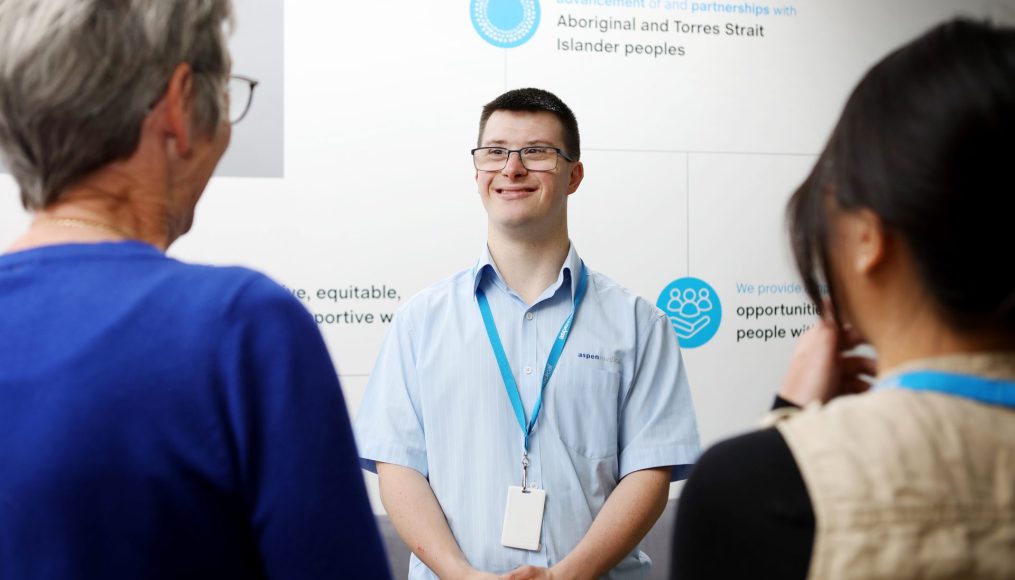
By Aspen Medical General Manager Culture and Performance Maricel Giorgioni and Culture and Performance Support Officer Ehren Keys
Ehren is a good team member. He works well with his colleagues and prioritises his tasks. If you ask him, ‘How are you, Ehren?’ I could guarantee he will answer you with excitement and say how brilliant his day is. He always has a positive outlook.
At work, he achieves more when his work follows some structure. We have a timetable or a schedule from Monday to Friday outlining what he needs to do. We need to consider his attention span when providing new tasks. It is essential that he understand the outcome and the importance of his tasks.
An example of his tasks is ensuring that all offices are organised at the beginning of the day. He monitors offices and checks them. When he sees things are left not in their proper place, he takes notes and then lets relevant colleagues know about it. He also processes police check applications. He recently commenced leading our weekly team meeting, where he asks for updates from everyone and asks how they are doing.
We make sure that activities are synchronised with his timetable.
Ehren enjoys social connections like other team members, so we do not schedule three-hour tasks on a computer. We need to organise his day with variety of tasks so that he will continue enjoying his role.
When Ehren moved to our department, I wasn’t fully aware of what things could trigger or impact his mood. So, I needed to know him both as an individual and a colleague.
He definitely likes a challenge. I need to make sure that I’m able to tailor his role to his ability and, at the same time, to his interests. This applies to other employees as well.
We must believe in what we’re doing; It’s not about ticking a box. It’s not about following a trend but about really knowing, understanding, and believing that employing a person with a disability is the right thing to do.
Ehren moved around in the organisation, from Corporate Support to Payroll and then to Culture and Performance. Those movements have presented him with different challenges because he needs to learn different skill sets. During his transfers, with adequate support from his colleagues and manager, Ehren successfully learned new systems and processes and worked with new people he needed to work with.
By Ehren Keys
What’s your name and where do you work?
I am Ehren Keys. I work in the Culture and Performance team at Aspen Medical.
How long have you been working there?
For eight years and four days a week.
What are some of the things you do in your job?
I’m doing processing of HR paperwork and I do payroll and I try to help out different teams. I chair my team meeting.
What’s your most favourite part of the job?
I really like working on the computer, and having fun with my team.
What is the hardest part of your job?
My hardest part for my job is when I can’t be focused on my work.
When you started working at Aspen Medical, what new skills did you have to learn?
I needed to get a Certificate 3 in Business and I completed a traineeship.
What does your boss do to support you?
My manager supports me by talking to me and giving me a challenge and I’m really happy about that.
How does it make you feel when you are included at work?
It makes me very happy and confident.
The full article is available in the following formats to download:


0 Comments